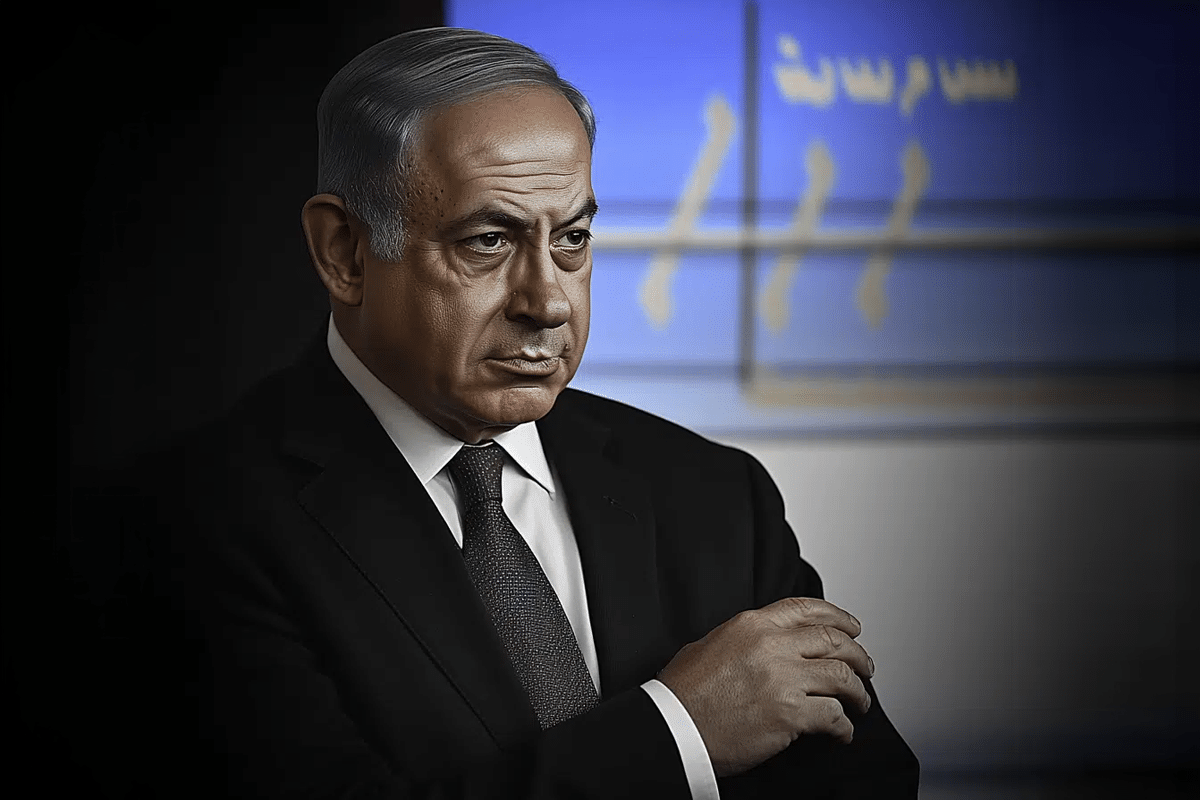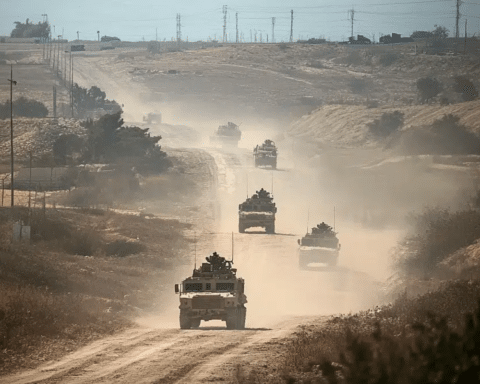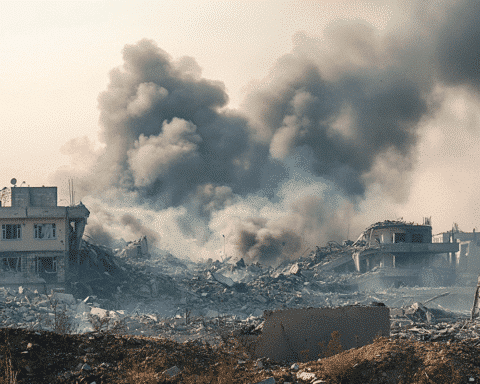Israeli Prime Minister Benjamin Netanyahu has reinforced his stance on maintaining control over Gaza’s border with Egypt, a critical factor in ceasefire negotiations. His remarks, made on Wednesday, highlight the central role of this issue in ongoing talks aimed at resolving the nearly 11-month-old war between Israel and Hamas. Netanyahu’s demand for indefinite control over the Philadelphi corridor, a strip of land along the Gaza-Egypt border, has raised concerns among mediators like Egypt, Qatar, and the United States, potentially jeopardizing peace efforts.
Netanyahu’s Unwavering Stance
Netanyahu firmly believes that maintaining control over the Philadelphi corridor is essential to prevent Hamas from smuggling weapons into Gaza. Speaking to foreign journalists, he stressed the importance of demilitarizing Gaza, stating, “Gaza must be demilitarized, and this can only happen if the Philadelphi corridor remains under firm control.” Israeli forces have reportedly discovered numerous tunnels under the border, which further strengthens Netanyahu’s argument for holding the corridor.
He also indicated that Israel would only consider withdrawing from the border if an alternative force capable of preventing smuggling emerged. “Bring me anyone who will show us … that they can prevent the recurrence of smuggling,” he said. However, he acknowledged that such a solution does not currently exist, making Israel’s continued presence necessary.
Criticism and Opposition
Netanyahu’s position has drawn criticism from several quarters, including Egypt, a mediator in the ceasefire talks, and the United Arab Emirates, which has urged for a clear timeline for Israeli withdrawal from the border. Hamas, for its part, has insisted on a complete Israeli withdrawal from Gaza as part of any truce agreement.
Families of hostages held by Hamas have also voiced their frustration, accusing Netanyahu of obstructing a potential deal that could save their loved ones. In response, Netanyahu emphasized the importance of long-term security, stating, “I can understand the torment of families. But the responsibility of leaders is not merely to share sentiment and emotion, but also to exercise judgment.” He believes that maintaining control of the border will put additional pressure on Hamas to release hostages.
Hostage Crisis and Public Pressure
The ongoing hostage crisis has heightened tensions, with Israeli families demanding immediate action. Recent protests have seen hundreds of thousands of Israelis take to the streets, urging the government to prioritize hostage rescue. Despite the mounting pressure, Netanyahu has remained resolute in his stance, insisting that controlling the border is crucial for Israel’s safety. He said, “Ensure Hamas doesn’t pose a threat to Israel,” pushing back against claims that his decisions have put hostages at greater risk.
Uncertainty Regarding a Timeline
Netanyahu declined to provide a clear answer when asked about the timeline for ending the war, reinforcing his determination to continue until the military operation’s goals are achieved. “How long can we do this? As long as it takes to achieve this victory. And I think we’re getting a lot closer,” he stated. His refusal to set a timeline has left many in Israel and beyond questioning the prospects of a ceasefire shortly.
Military Operations Continue
While ceasefire discussions remain ongoing, military operations have intensified. On Thursday, the Palestinian news agency WAFA reported that an Israeli drone strike killed five men and injured another in Tubas in the West Bank. The Israeli military confirmed the strike, claiming that the individuals targeted posed a direct threat to its forces. These actions mark part of the deadliest Israeli military operation in the West Bank since the beginning of the war.
Netanyahu’s firm stance on controlling Gaza’s border with Egypt continues to be a point of contention in ceasefire negotiations. While hostilities rage on, his approach to maintaining security along the Philadelphi corridor has drawn criticism from various mediators and public outcry from the families of hostages. The future of the ceasefire discussions remains uncertain as both sides grapple with conflicting demands and ongoing military operations. However, Netanyahu remains clear: Israel will stay on the border until security is guaranteed.





